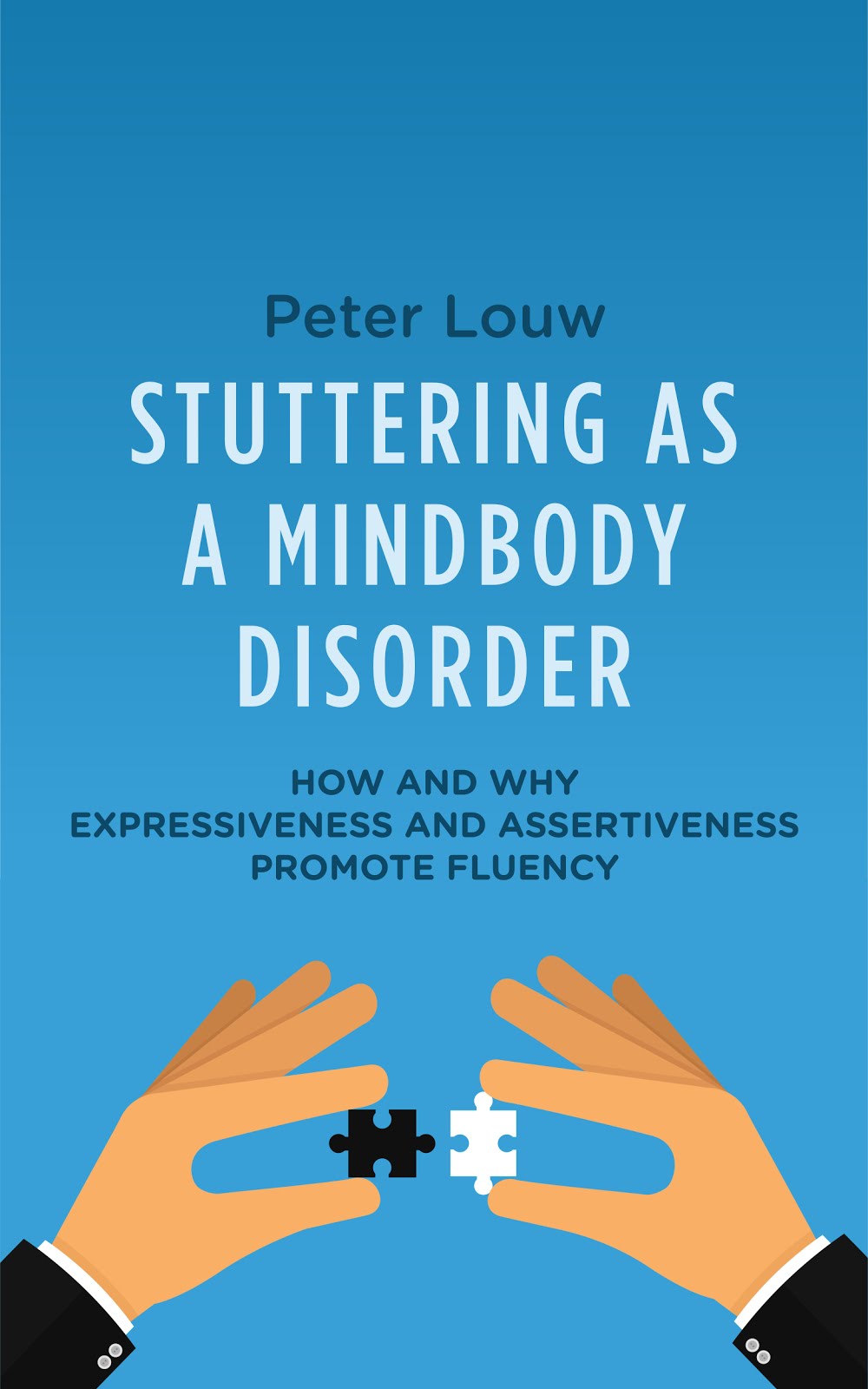 |
| The Maslow Hierarchy of Needs |
Have you ever had the feeling that something or some invisible force is holding you back in life? If you have a stutter, it would be easy to just blame it on this disorder. But it might be more complex than you think. The Maslow Hierarchy of Needs Pyramid could help in shedding more light on how stuttering and other obstacles may be preventing you from reaching your full potential.
Abraham Maslow (1908 – 1970) was an American psychologist who studied motivation and psychological growth in humans, focusing on achievers such as Albert Einstein. Eventually he developed a hierarchy of needs, with the most basic needs at the bottom and the most advanced at the top.
Note that these levels build on one another; if a particular need is not met, the individual may get stuck there without being able to develop to a higher level.
Maslow’s basic premise was that people tend to focus on needs in a specific sequence, starting from the bottom level – level 1 – which entails PHYSIOLOGICAL NEEDS such as food, water, sleep, shelter, sex etc. Example: most people who are hungry will focus on getting food, without worrying too much about their safety, friendships etc.
Only if these very basic needs are satisfied, will people – or most people, anyway – begin to consider second-level needs such as the SAFETY NEEDS: security of the body, financial security such as employment, law and order, freedom from fear etc.
On the third level are the SOCIAL NEEDS of belonging: a need for friendship, family, intimacy and love etc. This motivates people to join clubs and other organisations, office culture or teams, and to identify with a successful group and / or to make friends, find spouses / partners etc.
The fourth level is primarily psychological: the ESTEEM NEED for status and attention or fame, recognition, acceptance and respect. Other values on this level are self-respect, strength and mastery, confidence, freedom and independence, education, knowledge and achievement.
Note that achieving respect and acceptance from others may not necessarily improve self-acceptance. We have all known highly driven, successful yet unhappy individuals who internally suffer from a deep-seated lack of self-esteem. They have achieved outward success because of their intense desire to get the respect of others, yet because of their lack of self-acceptance remain the prisoner of the esteem level and unable to develop to the next level.
The fifth level is SELF-ACTUALISATION – the need to achieve one’s full potential. Creativity, self-expression, spontaneity and fulfilment are important values at this level. Self-actualisation means to become at peace with oneself. Maslow said that if levels 2, 3 and 4 are not met, the individual would feel anxious and tense as he/she would be living in a state of unfulfilled desire. Not meeting this need can also result in a lack of meaning in life. If met, the person feels creative, positive and energetic.
Maslow did acknowledge that the same person may find himself on multiple levels at the same time as part of a complex process of personal needs fulfilment.
Maslow’s pyramid has been criticised as based on Western individuality and not taking into account cultural differences – in some non-Western communities, less emphasis is placed on self-actualisation. Even so the pyramid does seem to contain more than one grain of truth.
What has this to do with stuttering?
A question to ask is where People Who Stutter (PWS) may find themselves in relation to this pyramid:Level 1 (the basics – food, shelter etc.): In this respect, PWS are in a similar position as fluent speakers.
Level 2 (the safety needs such as financial security): Herein would lie the first major hurdle for PWS – finding suitable employment despite a communication disorder such as stuttering. Freedom from fear would also be impacted by stuttering. If safety needs are not met, it frequently leads to anxiety and fight-or-flight behaviour – traits often seen in PWS.
Level 3 (the social need to belong): A communication disorder can hamper sociability. If this social need is not met, the result is often social anxiety. Fortunately most PWS do seem to find a Significant Other, and/or a few friends, who satisfy part of this need. PWS may, however, limit their social contact to this small group and may not further develop their social skills.
Level 4 (need for esteem and self-esteem): For PWS this seems to be THE critical level. The lack of self-esteem is probably the result of years of negative listener reactions to the stutter. People tend to react negatively when a child stutters. The child picks up this disapproval and can assume that he is doing something wrong. In time this feeling of ‘doing something wrong’ is deeply established, and results in a damaged self-esteem and a bad self-image.
According to Maslow and his followers, people whose esteem needs are not met can become fearful of failure, risks and criticism. They can also fear new situations, feel inferior, weak and helpless and may feel negative toward authority figures. However when their esteem needs are satisfied, they become confident and prepared to take risks and try new things. In restoring self-esteem, self-acceptance would seem to play a major part.
Level 5 (self-actualisation): I suspect that many PWS – and many fluent people – do not achieve this level or even have an understanding of their full potential, because they are still stuck in the esteem level. Their whole being may still be preoccupied with satisfying their esteem needs.
Conclusion
I have always thought that Maslow’s pyramid made a lot of sense, provided that provision is made for the many exceptions we see in real life. It is a model and a scheme, and as such can only be a generalisation of how people TEND to behave.
Perhaps our challenge lies in becoming the exception to the rule, in "beating" the pyramid and thereby not becoming its victim. In this life it's unrealistic to expect that all needs can be met. Surely it should be possible to achieve happiness even though all needs have not been satisfied - in fact the Buddha has said that inner peace can only be found by conquering, not fulfilling, our needs.
For me it was a sobering experience to position myself in the model, and it could be worth your while to do the same. I am sure that most of us, whether PWS or not, are ‘spread’ over most of the levels in some ways. If you have identified that in some aspects you are stuck at one of the levels, the pyramid will at least give you an indication of where you are in your development and where you can focus your efforts in developing further toward improved self-realisation.






No comments:
Post a Comment